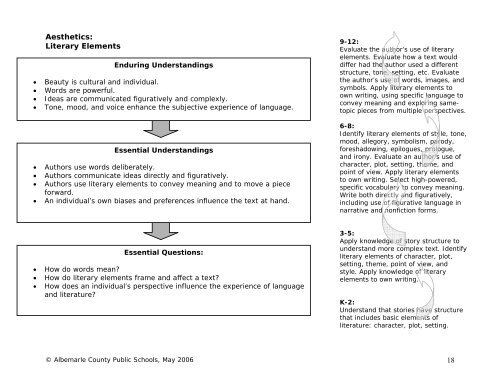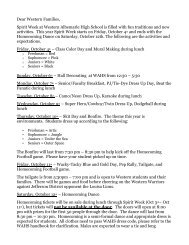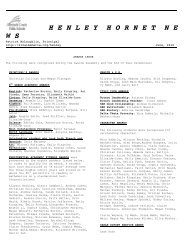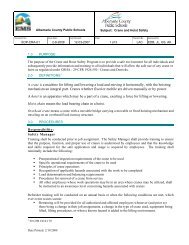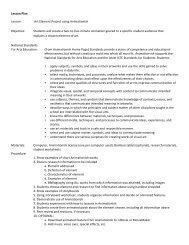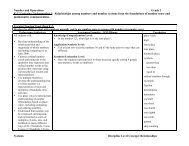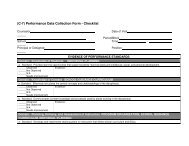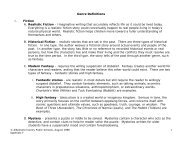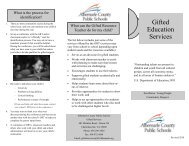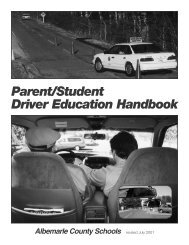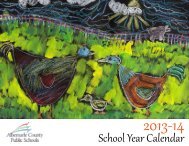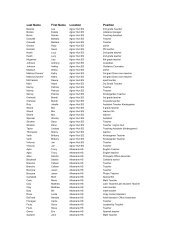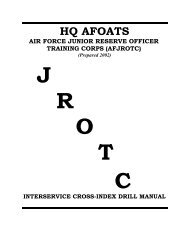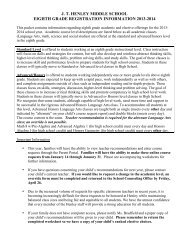Language Arts/English Curriculum Frameworks - Albemarle County ...
Language Arts/English Curriculum Frameworks - Albemarle County ...
Language Arts/English Curriculum Frameworks - Albemarle County ...
Create successful ePaper yourself
Turn your PDF publications into a flip-book with our unique Google optimized e-Paper software.
Aesthetics:<br />
Literary Elements<br />
Enduring Understandings<br />
• Beauty is cultural and individual.<br />
• Words are powerful.<br />
• Ideas are communicated figuratively and complexly.<br />
• Tone, mood, and voice enhance the subjective experience of language.<br />
Essential Understandings<br />
• Authors use words deliberately.<br />
• Authors communicate ideas directly and figuratively.<br />
• Authors use literary elements to convey meaning and to move a piece<br />
forward.<br />
• An individual’s own biases and preferences influence the text at hand.<br />
9-12:<br />
Evaluate the author’s use of literary<br />
elements. Evaluate how a text would<br />
differ had the author used a different<br />
structure, tone, setting, etc. Evaluate<br />
the author’s use of words, images, and<br />
symbols. Apply literary elements to<br />
own writing, using specific language to<br />
convey meaning and exploring sametopic<br />
pieces from multiple perspectives.<br />
6-8:<br />
Identify literary elements of style, tone,<br />
mood, allegory, symbolism, parody,<br />
foreshadowing, epilogues, prologue,<br />
and irony. Evaluate an author’s use of<br />
character, plot, setting, theme, and<br />
point of view. Apply literary elements<br />
to own writing. Select high-powered,<br />
specific vocabulary to convey meaning.<br />
Write both directly and figuratively,<br />
including use of figurative language in<br />
narrative and nonfiction forms.<br />
Essential Questions:<br />
• How do words mean<br />
• How do literary elements frame and affect a text<br />
• How does an individual’s perspective influence the experience of language<br />
and literature<br />
3-5:<br />
Apply knowledge of story structure to<br />
understand more complex text. Identify<br />
literary elements of character, plot,<br />
setting, theme, point of view, and<br />
style. Apply knowledge of literary<br />
elements to own writing.<br />
K-2:<br />
Understand that stories have structure<br />
that includes basic elements of<br />
literature: character, plot, setting.<br />
© <strong>Albemarle</strong> <strong>County</strong> Public Schools, May 2006 18


